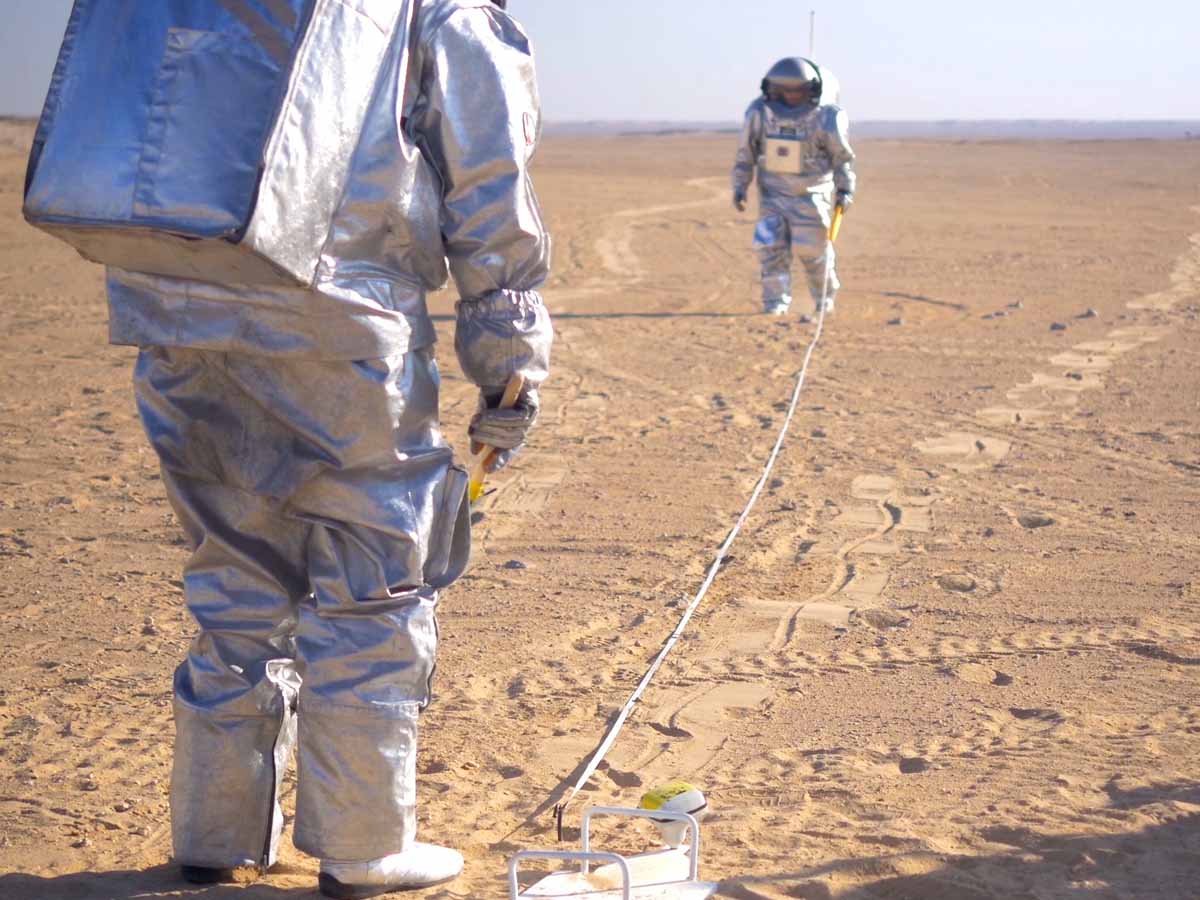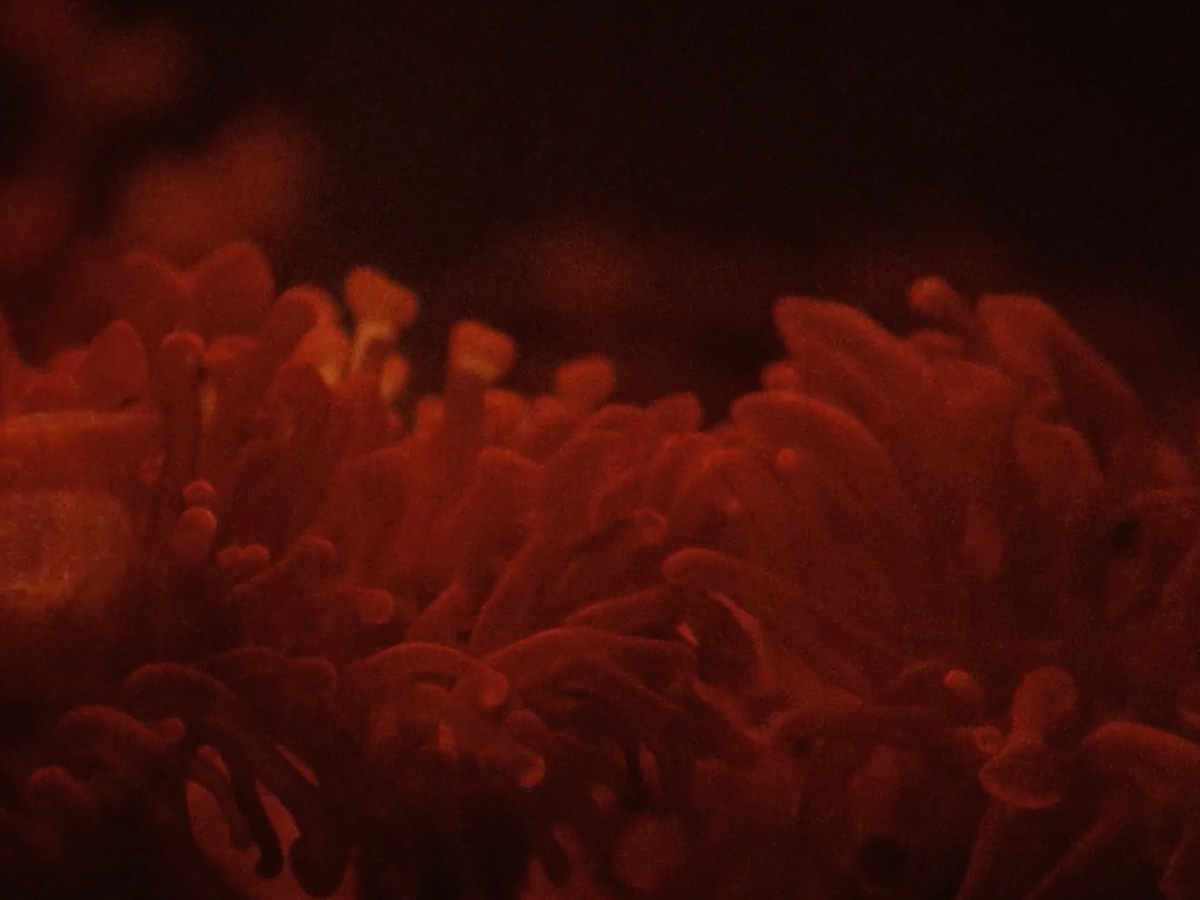
Mars, Oman
Oman’s vast plains look so much like Mars that they are used as a training ground for astronauts. Two local girls gaze at the starry sky like curious scientists while the astronauts philosophise about living on the Red Planet—people who differ greatly because of their language and culture share similar dreams.
Mars, but on Earth. The desert regions of Oman seem to resemble the Red Planet the closest. But why equate this land with outer space when we’ve never even visited the latter? To say alien is to say foreign. To say foreign is to say the Other, which corresponds perfectly with the image of the desert: for Western eyes, it has long been the image of the Middle East—the perfect tabula rasa waiting for someone to “civilise” it.
Vanessa del Campo’s Mars, Oman looks at a team of scientists and aspiring astronauts sent to Oman to prepare for Mars exploration. Yet its careful observational tone uncovers latent orientalist tensions within the idea of the desert as a space of projection. Also following two Omani teenage girls keen on science and Bedouins sharing their own stories about the skies and the desert, the astronauts are being looked at with a mix of admiration and funny suspicion.
Hinting at how oil and water have shaped the history of the desert, Del Campo’s no-commentary approach underlines with great tact and discretion the economic and political nuances of her subject and the region. The film is not overtly political, with few words, but the act of observation reveals much of the subtext. The desert is often allowed to speak for itself in quiet, meditative shots that are picturesque but never exoticising, precisely because of Del Campo’s framing, always returning to a local gaze. This vastness is not treated like a place of legend and adventure; the empty shots of sand lend power to the land, elevating it from backdrop to subject.
“I could swear they were thieves,” tells a local man about his confusion upon seeing the scientists for the first time. So out of place are they in the desert, measuring, digging, or tinkering in their shiny suits. But this remark is accidentally ironic, too. The astronauts’ training in the desert is a tiny simulacrum of a colonial gesture, innocuous and unintended in context, but bearing the memory of the many cases in history when white men had taken it upon themselves to bring technology to the desert. Doesn’t their Mars pretend-play seem absurd? Del Campo hints at this yet chooses to highlight the earnestness of the astronauts, filming them while they share their anxieties and big dreams about space.
Mars, Oman alternates between sympathy for the scientists and scenes that underline their blindness caused by the excitement for space, leading to a colonial dilemma. With exploration, there’s always an admirable desire for progress, a thirst to venture where no man has been. History has taught us, however, that this is liable to corruption, and progress has much to do with politics. This dynamic between innocent dreams and obtuse greed lingers throughout the film, making you wonder what the astronaut’s position is in the goal of conquering Mars. What were the Great Explorers thinking when they set out? Did they know what would come? Where is the line between a proto-coloniser and an eager pioneer of science? When we think of it, it’s easy to see how space exploration often employs colonial terminology: Mars must be conquered.
Exploration, however, does not belong only to the astronauts, and it’s not always an extension of colonialism. Del Campo turns her camera more to the locals’ perspectives than the astronauts’, avoiding any preconceived notions and stereotypical images of the country. Mars, Oman accentuates an innate and universal human desire to seek out new places and to dream of what lies beyond the horizon.
Moving might even be a way of survival. The girls hope to study in the West and find better opportunities and futures. For the peoples of the desert, nomadism is their way of life. For science, the race to Mars might be a much-needed preparation for when humanity finally manages to destroy planet Earth.
Progress is not reserved only for scientists; there is knowledge on all sides. The teenage girls are bright students—an iPad is all they need to devise a project that finds water in the desert. Equally, there is much to learn from a Bedouin elder’s perspective on the sky, even if he admits that he hasn’t gone to school, unlike his grandson. Del Campo works with delicate contrasts, confronting various approaches to outer space and land, but pacifies all under a shared wonderment at the sky. What is more natural than to gaze at the stars?
“There are more stars than grains of sand,” says the director at the beginning of her documentary, unveiling her own fascination with space. The vastness and beauty of the universe may surpass that of the desert. Inevitably, we all dream of the unreachable. In the end, there’s pleasure and comfort in the dreaming itself.
While essentially a very concrete and realistic film, Mars, Oman allows for the occasional mental escape into worlds greater than ours but also celebrates the beauty of our own, reclaiming the desert as a canvas for the projection of dreams instead of exotic misunderstandings.
Sofia is panicky again. The Universe decides to contact her—an other-worldly dialogue. Lentzou’s short film is a planet symphony for Mars, where people dream awake and fight for love.



